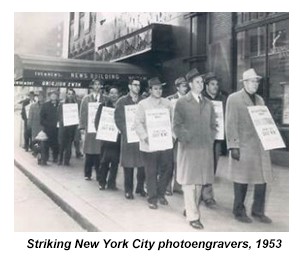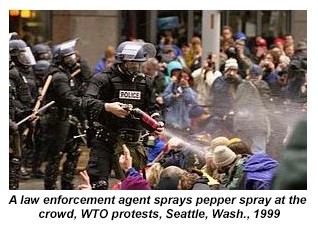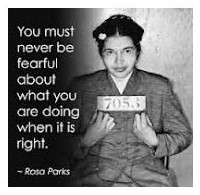This Week in Labor History
November 27
 Some 1,200 workers sit down at Midland Steel, forcing recognition of the United Auto Workers, Detroit – 1936The pro-labor musical revue, “Pins & Needles,” opens on Broadway with a cast of Int’l Ladies Garment Workers Union members. The show ran on Friday and Saturday nights only, because of the cast’s regular jobs. It ran for 1,108 performances before closing – 1937November 28 Some 1,200 workers sit down at Midland Steel, forcing recognition of the United Auto Workers, Detroit – 1936The pro-labor musical revue, “Pins & Needles,” opens on Broadway with a cast of Int’l Ladies Garment Workers Union members. The show ran on Friday and Saturday nights only, because of the cast’s regular jobs. It ran for 1,108 performances before closing – 1937November 28
 William Sylvis, founder of the National Labor Union, born – 1828National Brotherhood of Electrical Workers, precursor to IBEW, founded – 1891 William Sylvis, founder of the National Labor Union, born – 1828National Brotherhood of Electrical Workers, precursor to IBEW, founded – 1891
A total of 154 men die in a coal mine explosion at Marianna, Pa. Engineer and General Superintendent A.C. Beeson tells the local newspaper he had been in the mine a few minutes before the blast and had found it to be in perfect condition – 1908
 Some 400 New York City photoengravers working for the city’s newspapers, supported by 20,000 other newspaper unionists, begin what is to become an 11-day strike, shutting down the papers – 1953 Some 400 New York City photoengravers working for the city’s newspapers, supported by 20,000 other newspaper unionists, begin what is to become an 11-day strike, shutting down the papers – 1953
November 29
Clerks, teamsters and building service workers at Boston Stores in Milwaukee strike at the beginning of the Christmas rush. The strike won widespread support—at one point 10,000 pickets jammed the sidewalks around the main store—but ultimately was lost. Workers returned to the job in mid-January with a small pay raise and no union recognition – 1934
 The SS Daniel J. Morrell, a 603-foot freighter, breaks in two during a strong storm on Lake Huron. Twenty-eight of its 29 crewmen died; survivor Dennis Hale was found the next day, near frozen and floating in a life raft with the bodies of three of his crew mates. He had survived for nearly 40 hours in frigid temperatures wearing only a pair of boxer shorts, a life jacket, and a pea coat – 1966 The SS Daniel J. Morrell, a 603-foot freighter, breaks in two during a strong storm on Lake Huron. Twenty-eight of its 29 crewmen died; survivor Dennis Hale was found the next day, near frozen and floating in a life raft with the bodies of three of his crew mates. He had survived for nearly 40 hours in frigid temperatures wearing only a pair of boxer shorts, a life jacket, and a pea coat – 1966
National Labor Relations Board rules that medical interns can unionize and negotiate wages and hours – 1999
November 30
“Fighting Mary” Eliza McDowell, also known as the “Angel of the Stockyards,” born in Chicago. As a social worker she helped organize the first women’s local of the Amalgamated Meat Cutters Union in 1902 – 1854
 Mother Jones died at the Burgess Farm in Adelphi, Md.; “I’m not a lady, I’m a hell-raiser!” – 1930 Mother Jones died at the Burgess Farm in Adelphi, Md.; “I’m not a lady, I’m a hell-raiser!” – 1930
(The Autobiography of Mother Jones: Mary Harris Jones—“Mother Jones”—was the most dynamic woman ever to grace the American labor movement. Employers and politicians around the turn of the century called her “the most dangerous woman in America” and rebellious working men and women loved her as they never loved anyone else.
She was an absolutely fearless and tireless advocate for working people, especially coal miners. A founding member of the Industrial Workers of the World—the Wobblies—she feared neither soldiers’ guns nor the ruling class’s jails. Here, in her own words, is her story of organizing in steel, railroading, textiles and mining; her crusade against child labor; her fight to organize women; even her involvement in the Mexican revolution.)
 More than 12,000 members of the Insurance Agents Union strike in 35 states and Washington, D.C., against the Prudential Insurance Co. – 1951 More than 12,000 members of the Insurance Agents Union strike in 35 states and Washington, D.C., against the Prudential Insurance Co. – 1951
Unionists and activists shut down World Trade Organization meeting, Seattle, Wash. – 1999
December 01
The Ford Motor Co. introduces the continuous moving assembly line which can produce a complete car every two-and-a-half minutes – 1913
Kellogg cereal adopts 6-hour day – 1930
 African-American Rosa Parks refuses to go to the back of a Montgomery, Ala., bus, fueling the growing civil rights movement’s campaign to win desegregation and end the deep South’s “Jim Crow” laws – 1955 African-American Rosa Parks refuses to go to the back of a Montgomery, Ala., bus, fueling the growing civil rights movement’s campaign to win desegregation and end the deep South’s “Jim Crow” laws – 1955
United Garment Workers of America merge with United Food & Commercial Workers Int’l Union – 1994
Metal Polishers, Buffers, Platers & Allied Workers Int’l Union & United Rubber, Cork, Linoleum & Plastics Workers of America merge with Int’l Brotherhood of Boilermakers, Iron Ship Builders, Blacksmiths, Forgers & Helpers – 1996
December 02
A Chicago “slugger,” paid $50 by labor unions for every scab he “discouraged,” described his job in an interview: “Oh, there ain’t nothing to it. I gets my fifty, then I goes out and finds the guy they wanna have slugged, then I gives it to ‘im” – 1911
The U.S. Senate votes 65-22 to condemn Sen. Joseph McCarthy (R-Wisc.) for “conduct that tends to bring the Senate into dishonor and disrepute.” McCarthy was a rabid anti-Communist who falsely accused thousands of Americans, mostly people who supported labor, civil rights and other progressive causes, of being traitors – 1954
 (A People’s History of the United States: 1492-Present: McCarthy’s attack on progressive citizens is just one of many eye-openers revealed in Zinn’s book. If your last serious read of American history was in high school—or even in a standard college course—you’ll want to read this amazing account of America as seen through the eyes of its working people, women and minorities.) (A People’s History of the United States: 1492-Present: McCarthy’s attack on progressive citizens is just one of many eye-openers revealed in Zinn’s book. If your last serious read of American history was in high school—or even in a standard college course—you’ll want to read this amazing account of America as seen through the eyes of its working people, women and minorities.)
Court documents filed in Boston say Walmart Stores Inc. has agreed to pay $40 million to 87,500 Massachusetts employees who claimed the retailer denied them rest and meal breaks, manipulated time cards and refused to pay overtime – 2009
December 03
Textile strikers win 10-hour day, Fall River, Mass. – 1866
The San Francisco Board of Supervisors passes an ordinance setting an 8-hour workday for all city employees – 1867
IWW union Brotherhood of Timber Workers organized – 1910
 Canada’s Quebec Bridge, spanning the St. Lawrence River, opens to traffic on this day after the deaths of 89 construction workers in the course of the job. A flawed design was blamed for a 1907 collapse that killed 75; another 13 died in 1916 when a hoisting device failed as the central span was being lifted – 1919 Canada’s Quebec Bridge, spanning the St. Lawrence River, opens to traffic on this day after the deaths of 89 construction workers in the course of the job. A flawed design was blamed for a 1907 collapse that killed 75; another 13 died in 1916 when a hoisting device failed as the central span was being lifted – 1919
General strike begins in Oakland, Calif., started by female department store clerks – 1946
The express passenger train “20th Century Limited” ends more than 60 years of service when it takes its last run from New York City to Chicago – 1967
 Some 5,000 union construction workers in Oahu, Hawaii, march to City Hall in protest of a proposed construction moratorium by the city council – 1976 Some 5,000 union construction workers in Oahu, Hawaii, march to City Hall in protest of a proposed construction moratorium by the city council – 1976
At least four thousand people die, and as many as 20,000, in one of the largest industrial disasters on record. It happened in Bhopal, India, when poisonous methyl isocyante was released into the atmosphere at a Union Carbide India Limited pesticide plant. The results of investigations by Union Carbide and the government were never released to the public; one authoritative independent study laid blame at the feet of Union Carbide for its failures on training, staffing, safety and other issues – 1984
Arrests began today in Middleton, N.J., of teachers striking in violation of a no-strike law. Ultimately 228 educators were jailed for up to seven days before they were released following the Middleton Township Education Association’s agreement to take the dispute to mediation – 2001
—Compiled and edited by David Prosten |
 Some 1,200 workers sit down at Midland Steel, forcing recognition of the United Auto Workers, Detroit – 1936The pro-labor musical revue, “Pins & Needles,” opens on Broadway with a cast of Int’l Ladies Garment Workers Union members. The show ran on Friday and Saturday nights only, because of the cast’s regular jobs. It ran for 1,108 performances before closing – 1937November 28
Some 1,200 workers sit down at Midland Steel, forcing recognition of the United Auto Workers, Detroit – 1936The pro-labor musical revue, “Pins & Needles,” opens on Broadway with a cast of Int’l Ladies Garment Workers Union members. The show ran on Friday and Saturday nights only, because of the cast’s regular jobs. It ran for 1,108 performances before closing – 1937November 28 William Sylvis, founder of the National Labor Union, born – 1828National Brotherhood of Electrical Workers, precursor to IBEW, founded – 1891
William Sylvis, founder of the National Labor Union, born – 1828National Brotherhood of Electrical Workers, precursor to IBEW, founded – 1891








